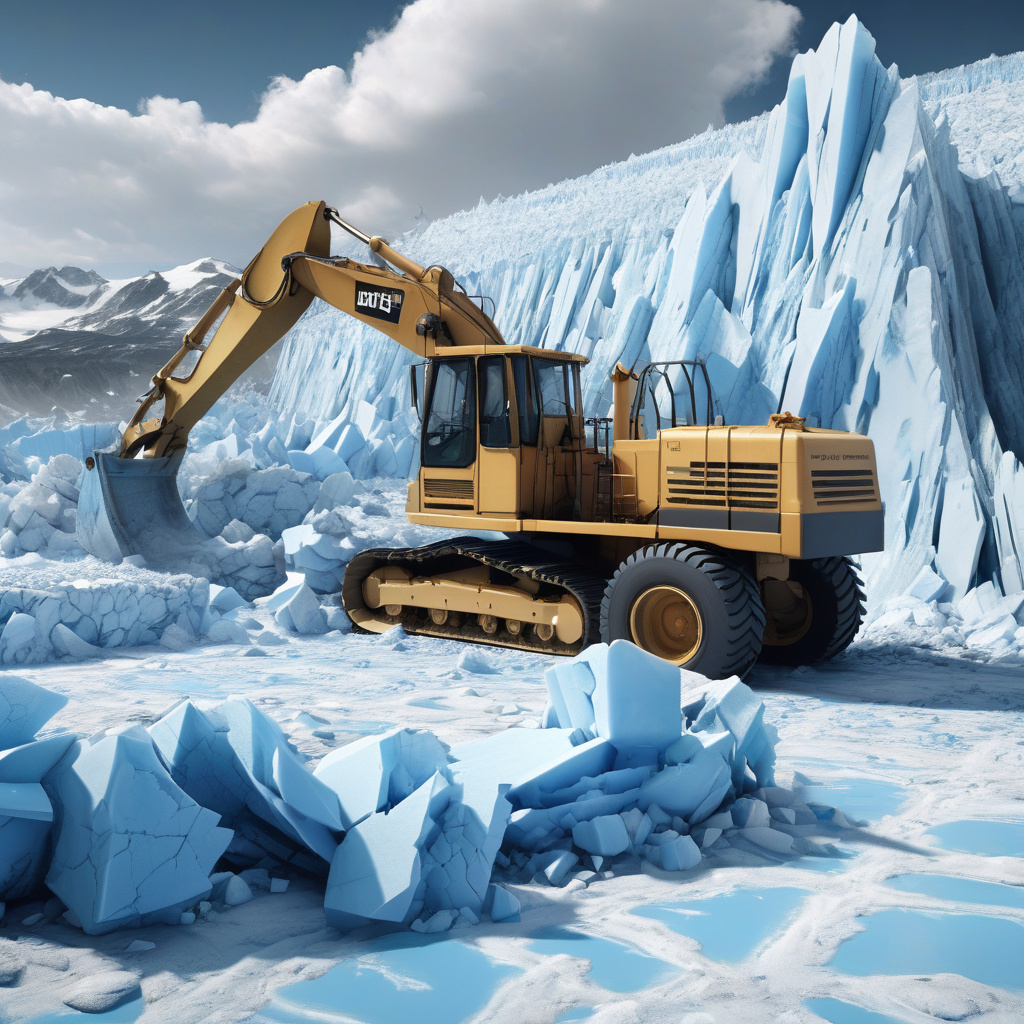The impact of glaciers on our planet goes far beyond icy landscapes. Recent research suggests that the bulldozing of glaciers may have played a pivotal role in spurring evolution in the ocean. As these planet-wide glaciers advanced and retreated over millions of years, they not only shaped the land but also filled the oceans with a rich supply of mineral nutrients.
The movement of glaciers across the Earth’s surface acted as colossal bulldozers, grinding rocks into fine particles. When these glaciers melted or retreated, they released vast amounts of these mineral-rich sediments into the surrounding oceans. This influx of nutrients, such as iron and phosphorus, provided a fertile environment for marine life to thrive.
In the vast expanse of the ocean, where nutrient availability is often a limiting factor for growth, the sudden influx of minerals triggered a chain reaction. These nutrients fueled the growth of phytoplankton, microscopic algae that form the base of the marine food web. As phytoplankton populations boomed, they became a plentiful food source for other marine organisms, setting off a cascade of evolution and diversification.
This phenomenon is not merely a historical curiosity but has profound implications for our understanding of the interconnectedness of Earth’s systems. The legacy of these ancient glacier-driven nutrient pulses can still be seen today in the biodiversity of our oceans. By uncovering the role of glaciers in shaping marine evolution, we gain valuable insights into how environmental changes can drive biological innovation.
As we grapple with the consequences of modern-day climate change, this research underscores the intricate ways in which geological processes can influence biological evolution. By studying the past, we can better prepare for the future and mitigate the impact of human activities on our planet’s delicate ecosystems.
In conclusion, the bulldozing of planet-wide glaciers may have been a driving force behind the evolution of life in the oceans. By enriching marine environments with essential nutrients, glaciers set the stage for a flourishing ecosystem that continues to shape our world today. This research highlights the profound influence of geological processes on biological evolution and underscores the importance of understanding our planet’s interconnected systems.

